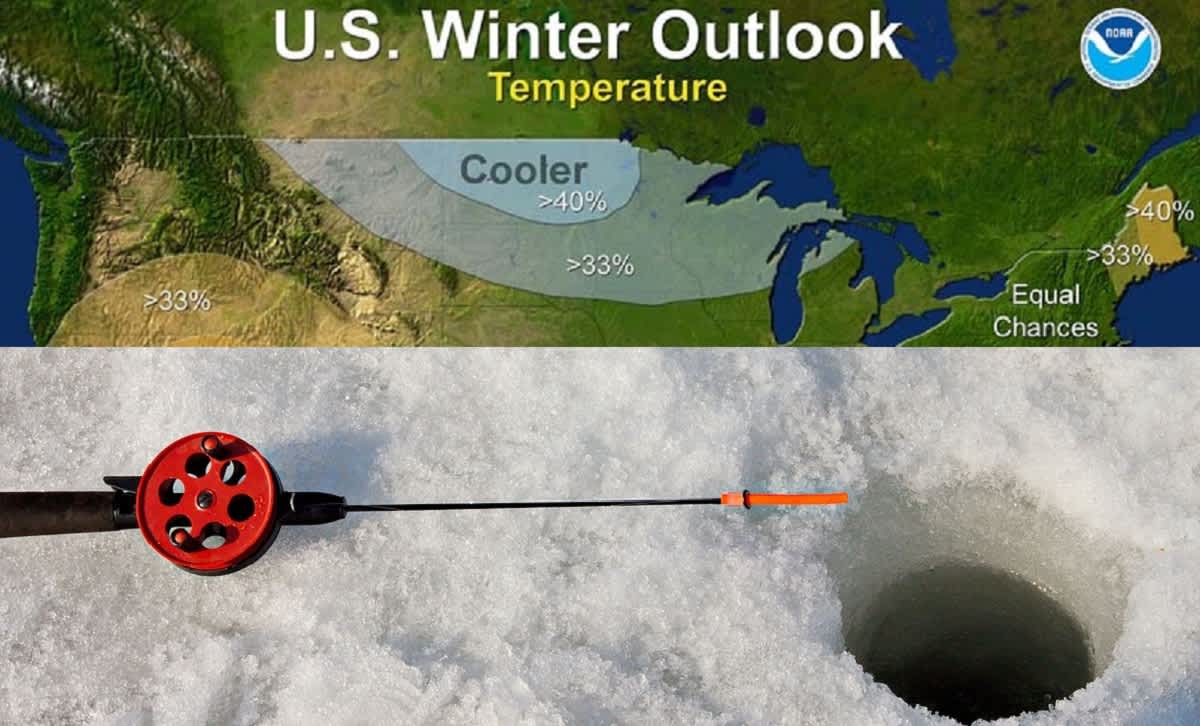U.S. Winter Outlook: Ice Fishing Forecast 2016-2017
OutdoorHub Reporters 10.21.16

Forecasters at NOAA’s Climate Prediction Center issued the U.S. Winter Outlook in a press release, and it looks like La Nina is expected to play a bigger role in our winter weather this year.
La Nina favors drier, warmer winters for the southern U.S. and wetter, cooler conditions in the northern U.S.
“This climate outlook provides the most likely outcome for the upcoming winter season, but it also provides the public with a good reminder that winter is just up ahead and it’s a good time to prepare for typical winter hazards, such as extreme cold and snowstorms,” said Mike Halpert, deputy director, NOAA’s Climate Prediction Center. “Regardless of the outlook, there is always some chance for extreme winter weather, so prepare now for what might come later this winter.”
If you’re blessed to live in a state that allows you to enjoy ice fishing, then you will be happy to read NOAA’s Climate Prediction Center has predicted colder temperatures this winter. If NOAA’s predictions are correct, a colder, wetter winter, it could make for some excellent ice fishing conditions this year.
It won’t be long now, soon we’ll be fishing ice holes and watching tip-ups like a hawk!
The 2016 U.S. Winter Outlook (December through February):
Precipitation
- Wetter than normal conditions are most likely in the northern Rockies, around the Great Lakes, in Hawaii and in western Alaska
- Drier than normal conditions are most likely across the entire southern U.S. and southern Alaska.

Temperature
- Warmer than normal conditions are most likely across the southern U.S., extending northward through the central Rockies, in Hawaii, in western and northern Alaska and in northern New England.
- Cooler conditions are most likely across the northern tier from Montana to western Michigan.
- The rest of the country falls into the “equal chance” category, meaning that there is not a strong enough climate signal in these areas to shift the odds, so they have an equal chance for above-, near-, or below-normal temperatures and/or precipitation.


